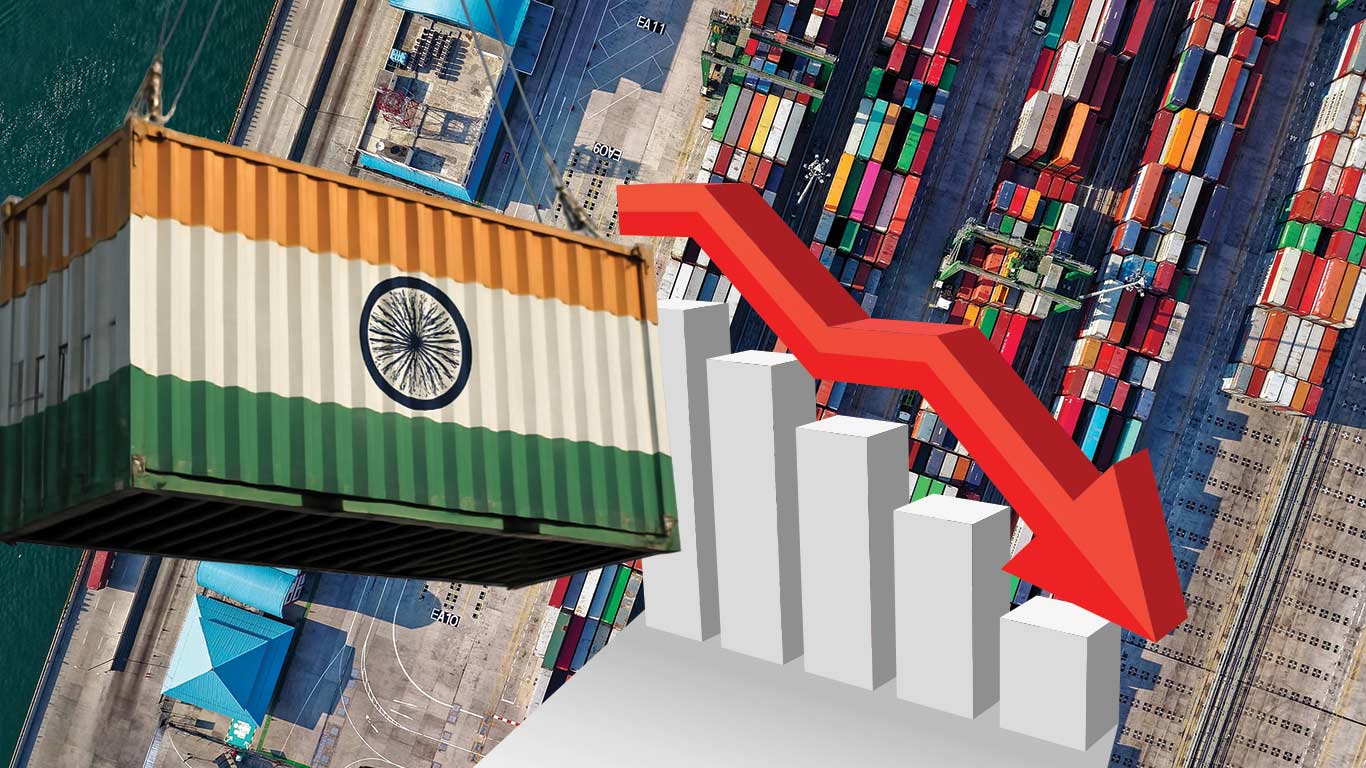
India’s merchandise exports to the US crashed more than 22% from May to August: GTRI report
NEW DELHI : India’s merchandise exports to the US, its largest trading partner, fell by a massive 22.2% from $8.8 billion to $6.9 billion between May and August 2025, according to a new report by the Global Trade Research Initiative (GTRI). US tariffs on Indian goods rose from 10% in early August to 25% from 7 August, and finally to a record 50% by the end of the month.
The GTRI analysis showed that the impact of tariffs has been uneven across sectors. Surprisingly, tariff-exempt exports, which accounted for 28.5% of India’s August shipments, saw the biggest contraction, declining 41.9% from $3.37 billion in May to $1.96 billion in August.
Smartphone exports — India’s largest category to the US — plummeted 58% to just $965 million despite facing no duty. Pharmaceutical shipments fell 13.3% to $ 647 million, raising questions about production shifts, component shortages, and supply-chain disruptions affecting Indian assembly units. Goods such as smartphones, pharmaceuticals, APIs, and petroleum products are classified as ‘category A’ items and are exempt from steep US tariffs.
Products in category B, which include iron, steel, aluminium, copper and auto components, face a 50% tariff but saw only a 4% decline from $630 million to $600 million, reflecting weaker industrial demand rather than a unique loss of competitiveness for India.
Category C, which includes textiles, gems and jewellery, agriculture, machinery, chemicals, and other products, is the largest segment, accounting for 62.7% of US imports from India. These goods also face a 50% tariff.
Seafood exports more than halve
Labour-intensive exports such as textiles, gems & jewellery, shrimp, and chemicals have been hit the hardest. Jewellery exports fell 9.1% to $228 million, with diamond-studded gold jewellery dropping 25.5% and cut and polished diamonds down 15.2%. Conversely, lab-grown diamonds rose 40.7%, indicating a shift in U.S. consumer preference toward more affordable and sustainable options, the GTRI report said.
Textiles and garments fell 9.3%, with non-knitted apparel declined 22.2% and cotton dresses crashed 66.7%, reflecting weakening demand in US fashion retail. While home textiles remained resilient, rising 14.2% to $263 million, technical textiles, carpets and fabrics saw sharp declines, signaling significant revenue loss in high-value and specialised exports.
Seafood exports, particularly Vannamei shrimp, plunged 52.2% to $98.6 million, posing a threat to jobs in coastal processing clusters. Solar panels slid 34.6%, risking further loss of market share to China and Vietnam, which face lower tariffs. Agrochemicals fell 26.7% and edible oils dropped 69.7%, highlighting the vulnerability of agricultural exports under high US tariffs.
September is expected to reflect the first full month of 50% tariffs for all category C exports, likely deepening the declines in labour-intensive sectors. The GTRI report warned that the ongoing slide in exports, especially in tariff-free categories, poses a risk to India’s flagship production-linked incentive (PLI) schemes and may undermine policy efforts to boost manufacturing and global competitiveness.
Industry bodies have called on the government to provide targeted export relief, including faster duty remission, interest subsidies under the interest equalisation scheme, and enhanced liquidity support. While GST cuts have boosted domestic consumption, export-specific relief is still missing.
“We are raising our demand and have asked for support through interest subvention, resolution of issues related to the Merchandise Exports from India Scheme (MEIS) for MSMEs, and RoDTEP (remission of duties and taxes on exported products scheme) benefits for steel exports as per the rates fixed by the Pillai Committee. The government should act quickly and provide relief,” said Pankaj Chadha, chairman, Engineering Export Promotion Council.
“There is an urgent need to stabilise exports, maintain India’s market share in the US, and safeguard jobs in critical sectors like textiles, gems & jewellery, seafood, and pharmaceuticals. Without swift intervention, the steep tariffs risk creating longer-term setbacks for India’s export growth,” said Ajay Srivastava, founder, GTRI.
Queries sent to the commerce ministry were not immediately answered.

